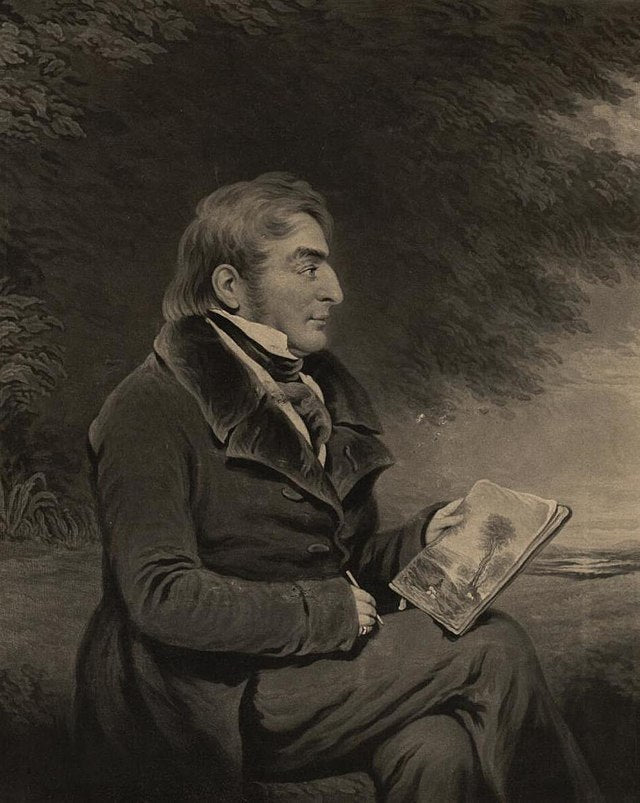Mothering in Jane Austens Zeit

"Eine Mutter wäre immer anwesend gewesen. Eine Mutter wäre eine ständige Freundin gewesen; ihr Einfluss wäre jenseits aller anderen gewesen."
- Jane Austen, Northanger Abbey
Mütter nehmen eine seltsame Position in Jane Austens Arbeit ein. Frau Bennet von Pride and Prejudice, ist möglicherweise eine der berühmtesten Mütter in englischer Literatur. Andererseits ist die Figur der Mutter in vielen von Austens Romanen eine auffällige Abwesenheit. Nehmen Sie Emma Woodhouse, die sehr die Dame von Highbury ist; oder Anne Elliot, unter den Launen ihres törichten Vaters. Denn alle interessiert sich für die Idee, ein gutes Liebesspiel zu machen, wir sehen nie, dass diese Beziehungen Früchte tragen, wobei ihre Romane hauptsächlich mit der Ehe unseres zentralen Paares enden. Leider wissen wir nicht genug über Jane Austens Mutter Cassandra, um zu beurteilen, wie viel Einfluss sie auf Austens Darstellung von Müttern hatte. Die Mütter in ihren Romanen und darüber, wie die Muttering in Austens Zeiten angesehen wurde, schreiben wir jedoch zu Ehren des Muttertags.
Was ist 'Mothering Sunday'?
Heute nutzen wir den Muttertag oder den Muttertag als Gelegenheit, die Frauen zu schätzen, die uns großziehen. Wir könnten ihr Frühstück im Bett holen, ihr ein Haufen Blumen kaufen oder sie zum Mittagessen herausnehmen. Die Ursprünge des Urlaubs sind jedoch ganz anders. "Mothering Sunday" ist ein Tag, an dem die strengen Fasten gelockert wurden, an denen Kinder nicht in der Kirche ihrer üblichen Gemeinde an der Kirche teilnehmen, sondern in ihre "Mutter" -Kirche reisen, d. H. Derjenige, in dem sie getauft wurden. Sie würden dann zurückkehren und ihren eigenen Müttern, einschließlich Kuchen und Blumen, Geschenke schenken. Warum nicht diese Tradition ehren, indem Sie Ihrer Mutter etwas backen? Hotcross -Brötchen?
Es scheint, dass die Tradition, Ihre Mutter an diesem Tag zu ehren Großbritannien an dem Tag, an dem der Anlass beobachtet wird.
Die Rolle einer Mutter in Jane Austens Zeit
Wie so oft war die Rolle der Mutter in der Regentschaft oft in den Unterricht. In der Regel wird von einer Mutter erwartet, dass sie ihre Kinder bis zu einer solchen Zeit, in der sie wurden zur Schule geschicktoder an eine Gouvernante weitergegeben, von denen keines zu diesem Zeitpunkt gesetzlich vorgeschrieben war. Daher gab es viel auf der Fähigkeit einer Mutter, ihre eigenen Fähigkeiten und Kenntnisse an ihre Kinder weiterzugeben, was stressig sein könnte, wenn eine Mutter viele von ihnen nahe beieinander hätte. Dies könnte bei Austens eigener Mutter der Fall gewesen sein, die in vier Jahren dreimal geboren wurde. Von den Müttern wird erwartet, dass sie allen Haushaltsangelegenheiten, vom Reinigen bis zum Nähen, bis zum Spielen der Gastgeberin, Weisheit verleihen. Für die Landed -Klasse würde es auch die Erwartung geben, dass Mütter ihre Töchter auf ihre Gesellschaftsdebüts vorbereiten und die sozialen Verbindungen, die sie hergestellt haben, sorgfältig prüfen.
Es braucht ein Dorf
Die Geburt in der georgischen Zeit blieb ein erhebliches Risiko. Es ist schwierig, harte Zahlen zu finden, aber viele Quellen legen nahe, dass bis zu einem Fünftel der Geburten zu mütterlichem führte Mortalität. Das Risiko wäre bei weniger wohlhabenden Müttern höher gewesen, ohne Zugang zu höheren Standards für Hygiene und Pflege.
Als solches hatte ein Kind möglicherweise eine alternative oder sogar mehrere Mutterfiguren in seinem Leben, von seinen eigenen Beziehungen wie Tanten und Großmüttern bis hin zu Gouvernanten und Krankenschwestern. Austen bemüht sich, diese verschiedenen Arten von liebevollen Beziehungen in ihren Romanen zu zeigen. Zum Beispiel ist Emma eindeutig an Anne Taylor verbunden, die sie funktional erhoben hat. Zusätzlich sehen wir eine weitere Anordnung in Mansfield Park, wobei Fanny zu Verwandten leben wird, weil ihre Eltern überlastet sind. Anne Elliot ist auch tief auf den Rat der Freundin ihrer Mutter, Lady Russell, angewiesen. Trotz der Strenge der Zeit können wir in Jane Austens Arbeit auf die vielen Möglichkeiten sehen, wie junge Menschen aus einer Reihe von Quellen mütterlichersüchtig sind. Vielleicht gab es in Jane Austens Zeit mehr familiäre Möglichkeiten, als wir uns jetzt für uns selbst vorstellen können!
Match machen
"Wenn ich nur eine meiner Töchter sehen kann, die sich glücklich in Netherfield niedergelassen hat", sagte Frau Bennet zu ihrem Ehemann, "und alle anderen ebenso gut verheiratet, ich werde nichts zu wünschen haben." - - Pride and Prejudice
Eines der Hauptanliegen von Müttern in Jane Austens Zeit bestand darin, sicherzustellen, dass die Töchter gute, angemessene Spiele machten. Dies könnte dazu führen, dass Mütter, nicht unangemessen, eine gewisse Not, eine charakteristische Eigenschaft, die von Frau Bennet so gut verkörpert wurde. Frau Bennet wird von Austen weder viel Spielraum gegeben, noch war die literarische Tradition besonders freundlich zu ihr, aber vielleicht sollten wir geben Sie ein bisschen Spielraum.
Wenn Sie ein Knacken von Töchtern und begrenzten Mitteln hätten, würden Sie wahrscheinlich zu Recht eine gewisse Angst darüber verspüren, dass beide verarmt sind. Es ist wahrscheinlich, dass Jane Austen selbst einen solchen Konflikt mit ihrer Mutter erlebt hat, da sie eine Verlobung mit Harris Biggs und anschließend nie verheiratet hat. Trotz der Befürchtungen der Mutter, dass sich unangemessene Spiele als etwas leichtfertig und hysterisch darstellen, wurden diese Ängste möglicherweise tatsächlich auf vernünftiger Klarheit gegründet. Einen guten Ehemann sichern; sichern Sie die Zukunft Ihres Kindes.
Wirst du diesen Sonntag den Muttertag feiern? Was sind deine Pläne? Haben Sie nicht traditionelle mütterliche Figuren in Ihrem Leben? Lassen Sie es uns in den Kommentaren wissen.


